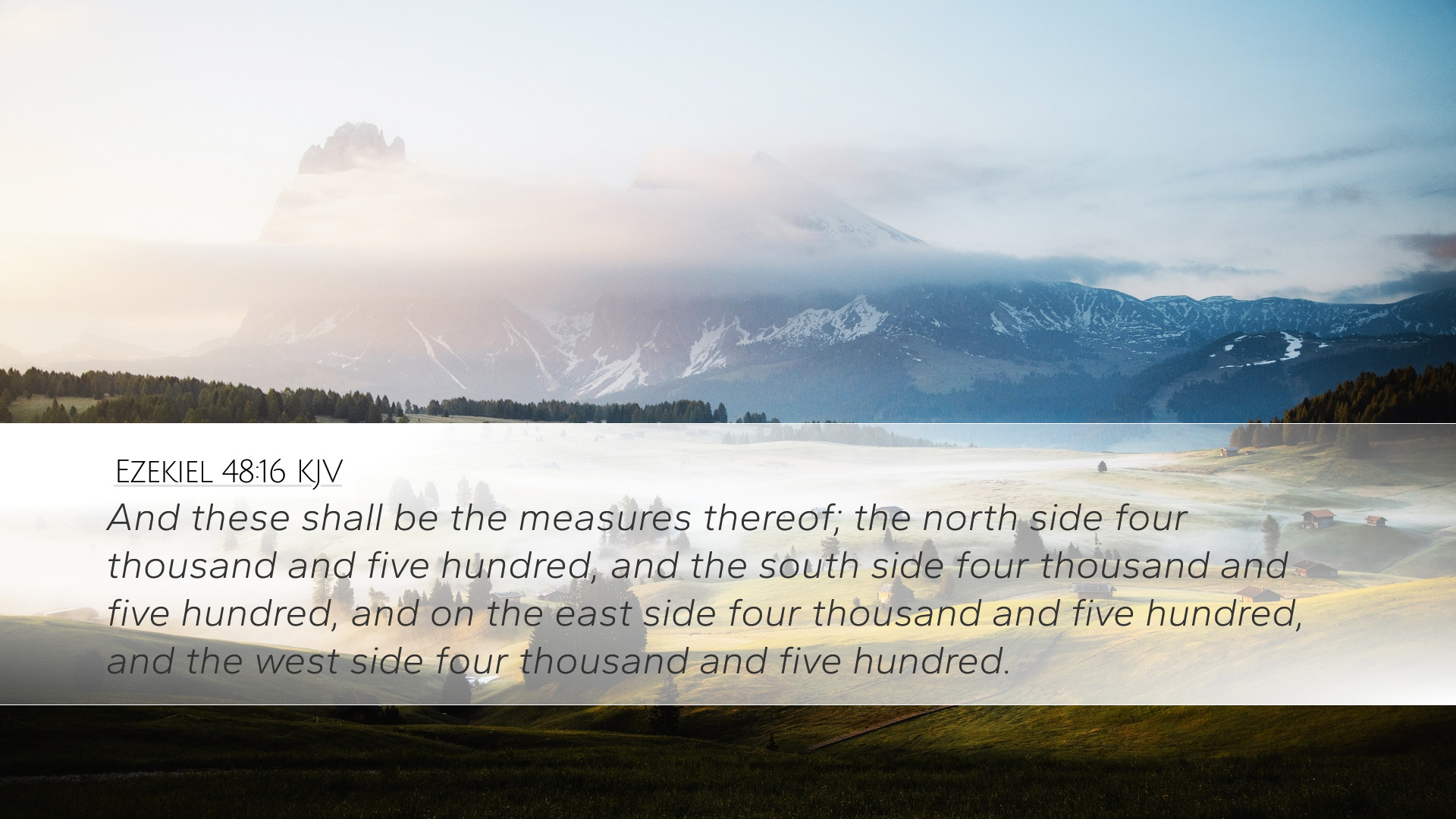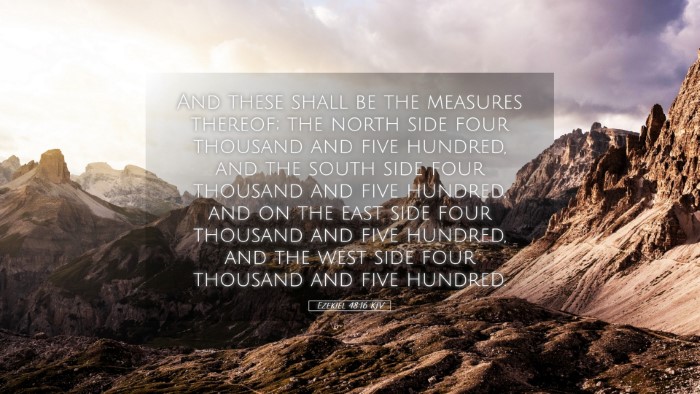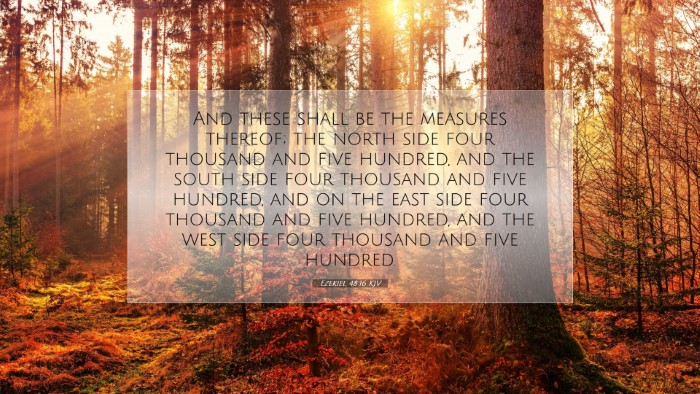Ezekiel 48:16 - Commentary Summary
Verse Context: Ezekiel 48:16 states, "And these shall be the measures thereof; the north side four thousand and five hundred, and the south side four thousand and five hundred, and on the east side four thousand and five hundred, and the west side four thousand and five hundred." This verse is part of Ezekiel's vision of the restored Israel, particularly concerning the division of the land among the tribes.
General Overview
The closing chapters of the Book of Ezekiel detail God's promise of restoration to His people after the Exile. This vision includes descriptions of the Temple, the land, and the boundaries assigned to each tribe. In this specific verse, the emphasis is on precise measurements that suggest order, divine planning, and a return to a community centered around the worship of God.
Theological Significance
The measurements presented in Ezekiel 48:16 carry significant theological implications:
- Divine Sovereignty: The exactness of these measurements symbolizes God's sovereignty over creation and His ability to restore His people. As noted by Adam Clarke, the delineation of borders reflects God's meticulousness in redemption.
- Hope of Restoration: Matthew Henry highlights that these descriptions serve to infuse hope into the hearts of the exiles, assuring them of their future home and the orderly heaven that awaits them after their trials.
- Symbol of Community and Worship: The orderly arrangement of the land underlines the importance of community with a focus on divine worship, as Barnes observes, and illustrates that the structure of society must be rooted in its relationship to God.
Commentary Insights
Various public domain commentaries provide in-depth insights regarding the implications of this verse:
Matthew Henry's Commentary
Matthew Henry interprets the measurements as not merely structural but symbolic of the perfect and harmonious community that God intends for His people. He emphasizes that the symmetrical layout signifies divine order and the security found in God’s salvation. The number "four thousand and five hundred," repeated for the four sides, may reflect completeness and fulfillment, suggesting God's readiness to provide for His people abundantly.
Albert Barnes' Notes on the Bible
Barnes elaborates on the significance of the land distribution as it pertains to the tribes of Israel. He points out that the measurements serve as tangible evidence of God's promises. Each tribe would receive inheritance evenly measured, demonstrating God’s justice and equity. The uniformity in size reinforces the idea of equal standing among God's people, as well as the unity that God desires within His community.
Adam Clarke’s Commentary
Clarke explains that the delineation of boundaries is critical in emphasizing the identity of God’s people. In a way, the land itself, and its proportions symbolize the grace with which God meets His people’s needs. Clarke remarks that these measures provide a compelling metaphor for spiritual boundaries that believers should establish in their lives, ensuring they remain within God's provision.
Application for Today
This verse, while historical in context, bears valuable lessons for contemporary readers, particularly pastors, theologians, and students of Scripture:
- Emphasizing Order: In a chaotic world, the structured measurements remind believers of the importance of divine order in their lives and communities.
- Assurance of God’s Promises: Just as the Israelites longed for restoration, modern believers can find hope and assurance in God’s promises during personal and communal hardships.
- Unity among Believers: The equitable distribution of the land teaches that unity within the church should be modeled after God’s justice, as all believers partake equally in Christ’s inheritance.
Conclusion
Ezekiel 48:16 is a succinct yet profound reminder of God’s meticulous provision for His people. Through public domain commentaries, we understand that the precise measurements are more than geographical markers; they reflect the very heart of God for His community—one that is restored, unified, and filled with hope and purpose. This verse calls us to reflect on our own boundaries as we seek to inhabit the fullness of God’s promises in our day-to-day lives.


